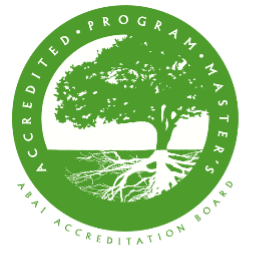Master of Educational Studies, Applied Behavior Analysis

March 1, 2026
May 11, 2026
Overview
Make a meaningful impact on the lives of individuals with disabilities with a Master of Arts (MA) in Special Education, Applied Behavior Analysis (ABA) Specialization from The Ohio State University. Designed for working professionals, this fully online program prepares you to develop and implement evidence-based practices grounded in Applied Behavior Analysis that enhance learning outcomes, foster independence, and improve the quality of life for a wide range of learners.
Accredited by the Association for Behavior Analysis International (ABAI), this program meets the coursework and degree requirements needed to pursue the Board Certified Behavior Analyst (BCBA) credential. Whether you’re looking to advance your career in education, healthcare, or community services, or establish yourself as an independent provider, you’ll graduate with the knowledge and experience to succeed in a variety of professional settings.
Why choose Ohio State’s online Applied Behavior Analysis graduate program?
- 50+ years of ABA leadership – Ohio State’s special education and Applied Behavior Analysis programs have contributed to the field since the 1970s, with graduates practicing and conducting research worldwide.
- Designed for working professionals – Created with educators in mind, this online ABA program allows you to apply what you learn in real time to your job, including the option to conduct your master’s project or thesis in your own classroom or workplace.
- Comprehensive, evidence-based learning – Understand and customize evidence-based behavioral interventions for a broad range of learners across academic, social, communication, vocational, and daily living areas.
- Pathway to the BCBA credential – Graduates of the ABAI-accredited program meet the coursework and degree requirements to pursue the BCBA credential, including BCBA-supervised field experience that can be completed at your place of employment.
- Personalized support every step of the way – From application to graduation, you’ll be supported by a dedicated enrollment advisor and a student success coordinator. You’ll also benefit from engaged, accessible faculty who are experienced in the field and committed to helping you make an impact.
- Flexible & fully online – 100% online, asynchronous courses allow you to earn your degree on your schedule, balancing education with your career and personal life.

Accreditation
The Association for Behavior Analysis International (ABAI) Accreditation Board is the governance body responsible for the accreditation of training programs in behavior analysis at the bachelor’s, master’s, and doctoral levels. The ABAI Accreditation Board has received full recognition from the Council for Higher Education Accreditation (CHEA).
Frequently Asked Questions
Yes. The program’s coursework is verified by the Association for Behavior Analysis International (ABAI) and meets the educational requirements to sit for the Board Certified Behavior Analyst® (BCBA) exam. The curriculum also includes supervised field experience that helps fulfill the requirements for certification, and can often be completed at your place of work.
Yes! Ohio State’s online Master of Educational Studies, Applied Behavior Analysis (ABA) is designed for working professionals. Courses are fully online and asynchronous, so you can complete your assignments and view lectures on a schedule that fits your work and personal life. Many students also complete their required supervised fieldwork at their current place of employment.
Yes. Ohio State is accredited by the Higher Learning Commission, and the ABA program is verified by the Association for Behavior Analysis International (ABAI). This verification ensures the coursework meets the educational standards required to pursue BCBA certification.
The program is 36 credit hours and can typically be completed in 2 to 3 years. Most students enroll part time to balance coursework with work and personal commitments, but full-time options are also available.
Related Content
Related Content

Meet Thandiwe: Shaping the future of ABA

How to become a Board Certified Behavior Analyst

What can I do with a master’s in Applied Behavior Analysis?

From RBT to BCBA: Michaela’s Applied Behavior Analysis journey
Academic Calendar
Ohio State’s Applied Behavior Analysis master’s program offers three start dates each year — in spring, summer, and autumn — so you can begin when the timing is right for you.
Admission Criteria
All applicants must have a completed bachelor’s degree with a minimum of a 3.0 cumulative GPA on a 4.0 scale. An undergraduate degree in education, psychology, or a related field and at least one year of professional work or internship experience working with individuals with disabilities is recommended. Applicants with non-education undergraduate degrees may be considered, depending upon the type of non-education degree and years of technical work experience.
What you’ll need
- Application
Applicants for admission to the program must complete an Ohio State Graduate Admissions online application. Please review the step-by-step application guide below. - Resume
Include an updated copy of your resume listing work experience. The resume can be uploaded in the online application system. - Academic credentials and transcripts
Copies of transcripts from all educational institutions you have attended must be submitted for degree verification and undergraduate GPA calculation. Unofficial copies can be uploaded in the online application system to form a complete application packet, but official copies of all transcripts (raised seal or notarized) must still be submitted to the Ohio State Graduate Admissions Office. Note: The application system may request three letters of recommendation by default. However, this program only requires two. You do not need to submit a third letter for your application to be considered complete. - Letters of recommendation
Please arrange to have two recommendations prepared. These can come from academic or professional connections who are familiar with your qualifications and potential for graduate study. Please contact your Enrollment Advisor with any questions about potential recommenders. You will have the option of allowing your recommendations to be submitted electronically or in paper form. Instructions are provided for either method within the online application. - Statement of Intent
Include a short essay about why you wish to enroll in the program. - Nonrefundable application processing fee
A non-refundable application fee of $60 is required.
How to apply: Step-by-step instructions
The application process includes several important steps. If you have questions or need assistance at any point, please reach out to our enrollment team. We’re here to help. Important: Be sure to review Step 7: Program Data carefully.
Begin your application and select the term you’d like to apply for.
Step 1: Select Degree Objective
Under the “Graduate” section, choose 1: Degree Seeking from the dropdown menu.
Step 2: Select Application
Choose Graduate Level Application.
If you are currently or were previously enrolled in a graduate program at Ohio State, select Graduate Intra-University Transfer instead. Then,
contact your Enrollment Advisor and identify yourself as an IGT applicant for further instructions.
Step 3: Select Academic Program/Plan, Term, and Campus
- Academic Program/Plan: Use the “Search Plans” function to select Educational Studies – MA Online.
- Term: Choose your desired start term from the dropdown menu.
- Campus: This field will auto-fill to “Columbus.”
Click Start Application to proceed.
Step 4: Enter Personal Data
Complete the required personal information fields. Click “Save and Continue.”
Step 5: Enter Contact Data
Enter your contact details. Click “Save and Continue.”
Step 6: Enter Academic Data
Provide your academic history and records. Click “Save and Continue.”
Step 7: Program Data (Special Instructions for ABA Applicants)
Complete the remaining required program data fields:
- Subplans/Specializations: Use the “Search Sub-Plans” function to select Special Education. Note: The Applied Behavior Analysis (ABA) program is the only fully online Special Education specialization available. For that reason, ABA will not appear separately in the dropdown list.
- Acknowledgement: Read and confirm that you understand you are applying for the online Applied Behavior Analysis (ABA) track within Special Education.
Click “Save and Continue.”
Step 8: Final Steps and Submission
Follow the instructions in the application to submit:
- Program Documents
- Reference Information
- Application Checklist
- Certification of Truth Statement
You may submit your application first and upload your documents later using the document uploader. Please be sure to meet all posted deadlines.
Need help?
We’re here to answer your questions! If you have any questions about the application process, contact your Enrollment Advisor or email us at onlineenrollment@osu.edu.

The Ohio State University participates in the State Authorization Reciprocity Agreements (SARA).
SARA is a national initiative that increases student access to distance education courses and programs while maintaining compliance with state regulations. Institutions participating in SARA can offer educational opportunities in all 49 SARA member states, the District of Columbia, the U.S. Virgin Islands and Puerto Rico without seeking individual approval in each state.
California is not a SARA member state, however, OSU may offer online courses and programs to students located in California under the California Private Post-Secondary Act of 2009.
The Application Process
Once you understand your program’s admission criteria, please note the application deadline. You’ll need a quiet space and a variety of materials for your application. To learn more, please see our Admissions page for the full process. Ready to Apply? Find your application here.
Career Outlook
What can you do with an Applied Behavior Analysis master’s degree?
Ohio State’s online Master of Educational Studies, Applied Behavior Analysis (ABA) program opens the door to a wide range of meaningful careers across education, healthcare, behavioral services, and beyond. Whether you’re passionate about working directly with individuals to improve their lives, shaping organizational behavior, or advancing research, an ABA master’s equips you with the skills and knowledge to make a real impact.
Top Occupations by Median Income
What They Do
Counsel and advise individuals and groups to promote optimum mental and emotional health, with an emphasis on prevention. May help individuals deal with a broad range of mental health issues, such as those associated with addictions and substance abuse; family, parenting, and marital problems; stress management; self-esteem; or aging.
Work Activities
Maintain confidentiality of records relating to clients’ treatment. Encourage clients to express their feelings and discuss what is happening in their lives, helping them to develop insight into themselves or their relationships. Assess patients for risk of suicide attempts.
Wage Range
- Entry Level: $39,090
- Mid Level: $59,190
- Senior Level: $98,210
Job Outlook
Bright
Related Careers
- Clinical and Counseling Psychologists
- Healthcare Social Workers
- Marriage and Family Therapists
- Mental Health and Substance Abuse Social Workers
- Rehabilitation Counselors
Job Sectors
- Psychology
- Therapy and Counseling
- Customer and Personal Service
- English Language
- Education and Training
What They Do
Teach academic, social, and life skills to preschool-aged students with learning, emotional, or physical disabilities. Includes teachers who specialize and work with students who are blind or have visual impairments; students who are deaf or have hearing impairments; and students with intellectual disabilities.
Work Activities
Employ special educational strategies or techniques during instruction to improve the development of sensory- and perceptual-motor skills, language, cognition, or memory. Teach socially acceptable behavior, employing techniques such as behavior modification or positive reinforcement. Communicate nonverbally with children to provide them with comfort, encouragement, or positive reinforcement.
Wage Range
- Entry Level: $38,740
- Mid Level: $62,190
- Senior Level: $132,530
Job Outlook
Below Average
Related Careers
- Special Education Teachers, Elementary School
- Special Education Teachers, Kindergarten
- Special Education Teachers, Middle School
- Special Education Teachers, Secondary School
- Teaching Assistants, Special Education
Job Sectors
- English Language
- Education and Training
- Psychology
- Public Safety and Security
- Therapy and Counseling
What They Do
Teach academic, social, and life skills to kindergarten students with learning, emotional, or physical disabilities. Includes teachers who specialize and work with students who are blind or have visual impairments; students who are deaf or have hearing impairments; and students with intellectual disabilities.
Work Activities
Administer standardized ability and achievement tests to kindergarten students with special needs. Attend professional meetings, educational conferences, or teacher training workshops to maintain or improve professional competence. Collaborate with other teachers or administrators to develop, evaluate, or revise kindergarten programs.
Wage Range
- Entry Level: $47,590
- Mid Level: $63,000
- Senior Level: $100,620
Job Outlook
Below Average
Related Careers
- Special Education Teachers, Elementary School
- Special Education Teachers, Middle School
- Special Education Teachers, Preschool
- Special Education Teachers, Secondary School
- Teaching Assistants, Special Education
What They Do
Teach academic, social, and life skills to elementary school students with learning, emotional, or physical disabilities. Includes teachers who specialize and work with students who are blind or have visual impairments; students who are deaf or have hearing impairments; and students with intellectual disabilities.
Work Activities
Administer standardized ability and achievement tests to elementary students with special needs. Attend professional meetings, educational conferences, or teacher training workshops to maintain or improve professional competence. Collaborate with other teachers or administrators to develop, evaluate, or revise elementary school programs.
Wage Range
- Entry Level: $47,590
- Mid Level: $63,000
- Senior Level: $100,620
Job Outlook
Below Average
Related Careers
- Adult Basic Education, Adult Secondary Education, and English as a Second Language Instructors
- Special Education Teachers, Kindergarten
- Special Education Teachers, Middle School
- Special Education Teachers, Preschool
- Special Education Teachers, Secondary School
What They Do
Teach academic, social, and life skills to middle school students with learning, emotional, or physical disabilities. Includes teachers who specialize and work with students who are blind or have visual impairments; students who are deaf or have hearing impairments; and students with intellectual disabilities.
Work Activities
Establish and enforce rules for behavior and policies and procedures to maintain order among students. Modify the general education curriculum for students with disabilities, based upon a variety of instructional techniques and instructional technology. Develop or write Individualized Education Programs (IEPs) for students.
Wage Range
- Entry Level: $48,070
- Mid Level: $64,880
- Senior Level: $102,730
Job Outlook
Below Average
Related Careers
- Special Education Teachers, Elementary School
- Special Education Teachers, Kindergarten
- Special Education Teachers, Preschool
- Special Education Teachers, Secondary School
- Teaching Assistants, Special Education
Job Sectors
- Education and Training
- English Language
- Psychology
- Customer and Personal Service
- Mathematics
What They Do
Teach academic, social, and life skills to secondary school students with learning, emotional, or physical disabilities. Includes teachers who specialize and work with students who are blind or have visual impairments; students who are deaf or have hearing impairments; and students with intellectual disabilities.
Work Activities
Develop and implement strategies to meet the needs of students with a variety of handicapping conditions. Observe and evaluate students’ performance, behavior, social development, and physical health. Establish and enforce rules for behavior and policies and procedures to maintain order among students.
Wage Range
- Entry Level: $47,930
- Mid Level: $69,590
- Senior Level: $106,050
Job Outlook
Below Average
Related Careers
- Special Education Teachers, Elementary School
- Special Education Teachers, Kindergarten
- Special Education Teachers, Middle School
- Special Education Teachers, Preschool
- Teaching Assistants, Special Education
Job Sectors
- English Language
- Education and Training
- Computers and Electronics
- Mathematics
- Customer and Personal Service
What They Do
Counsel and advise individuals with alcohol, tobacco, drug, or other problems, such as gambling and eating disorders. May counsel individuals, families, or groups or engage in prevention programs.
Work Activities
Complete and maintain accurate records or reports regarding the patients’ histories and progress, services provided, or other required information. Counsel clients or patients, individually or in group sessions, to assist in overcoming dependencies, adjusting to life, or making changes. Assess individuals’ degree of drug dependency by collecting and analyzing urine samples.
Wage Range
- Entry Level: $39,090
- Mid Level: $59,190
- Senior Level: $98,210
Job Outlook
Bright
Related Careers
- Healthcare Social Workers
- Marriage and Family Therapists
- Mental Health and Substance Abuse Social Workers
- Mental Health Counselors
- Rehabilitation Counselors
Job Sectors
- Therapy and Counseling
- Psychology
- Education and Training
- Customer and Personal Service
- English Language
National occupational information in Ohio State Online’s Career Outlook tool is sourced from O*NET Online and the U.S. Bureau of Labor Statistics (BLS). The median annual wage displayed to the right of each occupational title above is based on the BLS Employment Projections program. Outlook and percent change indicate projected growth or decline over the next 10 years.
What is the BCBA credential?
The Board Certified Behavior Analyst (BCBA) credential is a nationally recognized certification for professionals who meet rigorous education, supervised fieldwork, and examination standards in behavior analysis. Earning the BCBA credential can open doors to leadership roles, specialized clinical work, and higher salaries.
Graduates of Ohio State’s ABA program meet the coursework and degree requirements for BCBA eligibility, including built-in BCBA-supervised field experience.
Learn more about how to become a BCBA.
Job outlook for behavior analysts
Demand for trained ABA professionals continues to grow. According to the Behavior Analyst Certification Board’s 2024 Workforce Demand Report, job postings for BCBA and BCBA-D roles increased by 58% from 2023 to 2024, the highest annual increase to date.
Earning a master’s degree in Applied Behavior Analysis positions you for a growing field with strong career potential.
Curriculum
The Master of Arts in Special Education, ABA Specialization program consists of 36 credit hours, which you can complete at your own pace, either full-time or part-time. While most students take one or two courses per semester and complete the degree in about two to three years, you have the flexibility to take courses at a rate that best fits your schedule.
Students in this program are required to:
- Complete courses in foundations, multicultural and human diversity, and research; complete the verified course sequence (VCS) for the BCBA credential (i.e., basic behavior analysis, behavioral assessment, behavioral interventions, advanced ABA, ethics in ABA, single case design, personnel management); and complete electives based on individual areas of study (mild-moderate disabilities, moderate-intensive disabilities, early childhood).
- Complete supervised field experience working directly with individuals with disabilities on the following applied skills: assessment, intervention, data collection, data analysis, and decision-making in the student’s area of study (mild-moderate disabilities, moderate-intensive disabilities, early childhood).
- Complete a master’s thesis using a behavioral research design and addressing questions and methods that are based on a behavior-analytic approach.
ESSPED 5742 – Applied Behavior Analysis for Teachers (3) Prerequisite depending on previous experience
ESPHE 6250 – History of Education (3) MAES Foundations requirement
ESSPED 6650 – Introduction to Exceptional Children (3) MAES Multicultural and Human Diversity requirement
ESSPED 8861 – Single Case Research Design (3) MAES Research requirement
ESSPED 8200 – Basic Behavior Analysis (3)
ESSPED 8300 – Behavioral Assessment (3)
ESSPED 8400 – Behavioral Interventions in Special Education (4)
ESSPED 8500 – Personnel Management and Supervision (2)
ESSPED 8832 – Advanced Applied Behavior Analysis (3)
ESSPED 8921 – Ethical Issues in Applied Behavior Analysis (3)
ESSPED 8189 Field Experience in Special Education (likely 3 credits + 3 credits across two semesters)
ESSPED 7999 – Thesis Research: Special Education (3) or ESSPED 8193 – Advanced Individual Studies: Special Education (3)
Program Faculty
The Master of Arts in Special Education, Applied Behavior Analysis Specialization program at Ohio State’s College of Education and Human Ecology creates education leaders at the forefront of educational policy. Our faculty are experts in a broad range of disciplines, providing you with unique experiences to learn and grow in our nationally ranked programs.

Peter Paul, PhD
Program Chair, Department of Educational Studies
Professor, Department of Educational Studies
Peter V. Paul, PhD, is a professor in The Ohio State University’s Department of Educational Studies. One of his major responsibilities is teacher preparation for individuals interested in the education of d/Deaf and hard of hearing students, especially in general education settings.
Paul has published extensively on English language and literacy development for individuals who are deaf and hard of hearing and has more than 270 publications. His current projects include research on the development of reading comprehension and literate thought, influenced by his major model – the Qualitative Similarity Hypothesis.
He is the current Editor of the American Annals of the Deaf (established in 1847), the oldest professional journal in the field of deafness. Dr. Paul has received the College of Education Senior Research Award (2000), the Richard and Laura Kretschmer National Leadership Award in Hearing Impairment (2010; Ohio School Speech Pathology Educational Audiology Coalition [OSSPEAC]), and EHE’s Faculty Impact Award (2022). In December 2022, he received the King Salman International Disability Research Award. This award is granted to scientists, researchers, and entities who have made distinguished scientific contributions that affected the fields of disability. This award is the largest in the world in this area, and senior scientists from all countries compete to obtain it.
Dr. Paul has conducted workshops and presentations on an international, national, state, and local level in the areas of English literacy, inclusion, and literate thought.
Dr. Paul has a bilateral, profound hearing impairment and wears two cochlear implants. He is the father of a son, Peter Benedict, who has Down syndrome and autism.
Sheila Morgan
Professor, Department of Educational Studies
Carly Gilson
Associate Professor, Department of Educational Studies
Moira Konrad
Associate Professor, Department of Educational Studies
Matthew Brock
Associate Professor, Department of Educational Studies
Alana Telesman
Senior Lecturer, Department of Educational Studies
Testimonials
Hear from students who are gaining the knowledge, support, and real-world experience to make a meaningful impact through Ohio State’s Applied Behavior Analysis master’s program.
Testimonials
Hear from students who are gaining the knowledge, support, and real-world experience to make a meaningful impact through Ohio State’s Applied Behavior Analysis master’s program.

This program has enabled me to begin taking steps toward conducting research that I hope will make a difference in the lives of the children I will work with and the ABA community as a whole. It’s allowing me to dedicate time and resources to my studies and gain the knowledge I need to truly make an impact.

The combination of real-world case studies, practicum experiences, and constant feedback from professors and classmates has given me a toolbox — and confidence — to design interventions that truly improve clients’ quality of life.

It’s a rigorous, supportive, and well-rounded program that truly prepares you for the responsibilities of becoming a BCBA.
Tuition Fee Overview
Investing in your future with a higher education degree is one of the best investments you can make for your future success. At Ohio State, we know understanding your program’s cost is an important part of your decision-making process. Below are the tuition fees you can expect with your program. The full-time estimates are based on 9 credit hours per semester.
| Tuition Fees | Part-Time – Per Credit Hour (unless otherwise noted) | Full-Time – Total Cost Per Semester |
|---|---|---|
| Instructional Fee | $829.75 | $7,467.75 |
| General Fee | $32.63 | $293.67 |
| Learning Technology Fee | $31.50 | $189.00 |
| Distance Learning Fee | $100.00 (per semester) | $100.00 |
| Non-Resident Surcharge (if applicable) | $200.00 (per semester) | $200.00 |
Tuition fees are subject to change. The table above serves as a guide and not an official bursar’s bill. Full-Time costs are total tuition costs per semester.
Financial Aid Resource
Financial Aid Resource
Get Started
Connect with a knowledgeable Enrollment Advisor who can help answer your questions and explain different aspects of the more than 80 online degrees and certificates offered at Ohio State. They are here to help you on your education journey.


